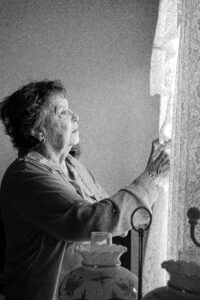Mental illness in older adults is often overlooked and therefore goes untreated. Differentiating mental illness from dementia can be hard, due to the many overlapping signs and symptoms. More specifically, Dementia and Depression both can present as loss of interest in normal hobbies, withdrawal from social events/activities, forgetfulness, change in sleeping habits, difficulty in concentration, intense depressive mood, agitation/irritability, fatigue, etc.
“About one fifth of adults aged 55 or older have experienced some type of mental health concern, but sadly most of them have not received any treatment for it.”
https://pavilionwp.com/Dementia-versus-Mental-Illness-in-Seniors
Dementia: is a term used to categorize a group of symptoms that affects an individual’s memory.
These symptoms include: 
- Forgetfulness and memory loss
- Communication difficulty
- Visual and spatial deficiency
- Reasoning and problem-solving difficulties
- Difficulty in motor functioning and coordination
- Disorientation (confusion)
Dementia can mask underlying mental illness thus making it difficult to diagnose an individual, and/or notice a change in an individual. The overlap in symptoms can lead to a misdiagnosis, so it is important to receive not only a psychological evaluation, but a comprehensive physical examination as well.
Depression: is a medical illness that negatively affects the way an individual feels, thinks, and acts.
Symptoms can include:
- Feeling down or sad
- Loss of interest in activities they used to enjoy
- Changes in appetite
- Lack of sleep, or sleeping too much
- Feelings of worthlessness or guilty conscious
- Difficulties in concentrating and thinking
- Thoughts of death and/or suicide

It is important to note that the, “rates of clinical depression vary across ethnic groups, although correct diagnosis is frequently a problem with minorities due to inadequate access to physical and mental health care” (Algeri`a et al., 2008; National Institute of Mental Health, 2016a). Rates of clinical depression also vary situationally, “less than 5% of older adults living in the community show signs of depression, but the percentage rises to over 13% among those who require home health care (National Institute of mental health, 2016a).”
https://pathwayshealth.org/hospice-topics/depression-and-dementia-similarities-and-differences/
https://pathwayshealth.org/hospice-topics/depression-and-dementia-similarities-and-differences/
https://www.mayoclinic.org/diseases-conditions/dementia/symptoms-causes/syc-20352013
https://www.psychiatry.org/patients-families/depression/what-is-depression
